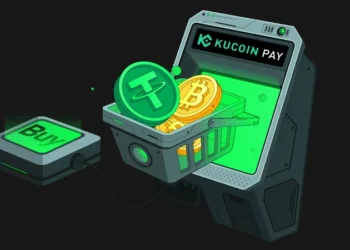Everyone now wants a piece of the Bitcoin pie. Aside from owning Bitcoin directly, there are indirect ways of gaining exposure, one of which is through spot Bitcoin ETFs, which have become popular thanks to the U.S. SEC’s January 2024 move.
Both of these methods offer unique benefits and drawbacks. To decide which is right for you, you’ll need to consider your financial goals, risk appetite, and philosophical stance on Bitcoin’s future role in finance.
This analysis will help you evaluate each method based on the following factors: accessibility, control, fees, risks, and alignment with Bitcoin’s ethos.
Let’s get to it.
Accessibility and Simplicity
Owning Bitcoin directly requires more effort on the investor’s part. You need to understand how to set up a wallet and grasp basic blockchain principles. On the other hand, spot Bitcoin ETFs simplify the process, making it as easy as buying shares through traditional brokerage accounts.
RELATED: Where on Earth Can You Trade Spot Bitcoin ETFs Legally?
However, with ETFs, you lose full autonomy over your assets. Direct ownership places you among the 114 million entities managing a Bitcoin wallet, bypassing intermediaries entirely and giving you complete control over your holdings.
Security and Custody
By holding private keys, investors gain full control over their assets, which aligns with Bitcoin’s philosophy: “Don’t trust, verify.” However, self-custody places the responsibility for securing those private keys on the investor, increasing the risk of theft or loss if mishandled.
Another subtle risk arises from the type of wallet you use. Hot wallets (aka non-custodial wallets), managed by exchanges and specialized providers, have been tarnished by past scandals such as exchange collapses and hacks. Cold storage, though fully under your control, comes with its own risks. If you lose your passphrase, key details, or hardware, your assets are gone forever, and recovery is often impossible.
RELATED: What Are Custodial And Non-Custodial Crypto Wallets?
Bitcoin ETFs, however, offer institutional-grade security. The Bitcoin within these funds is typically stored in cold storage, significantly reducing the risk of cyberattacks. Investors also benefit from regulatory oversight, providing a layer of protection that direct ownership doesn’t offer.
Cost Efficiency
Bitcoin ETFs simplify tax reporting and eliminate the complexities of managing transaction fees across crypto exchanges. While ETFs charge management fees—typically between 0.5% and 2% annually—these fees may be offset by savings on trading-related costs, such as conversion or transfer fees.
Direct ownership avoids ETF management fees but comes with its own costs. Crypto exchanges impose trading fees, including maker/taker fees and conversion costs, which can accumulate over time. Additionally, wallet maintenance and hardware security solutions may incur extra expenses.
Utility and Transparency
While ETFs provide indirect exposure to Bitcoin’s value, they lack the functional utility of direct ownership. Investors cannot use Bitcoin held in ETFs for peer-to-peer transactions, lending, or decentralized finance (DeFi) applications. In contrast, self-custody provides real-time verification via blockchain technology, ensuring unmatched transparency.
Some ETFs also face transparency issues regarding the Bitcoin backing their investments. Before the U.S. SEC approval, Dennis Kelleher, CEO of Better Markets, warned that these funds could lead to “massive investor harm.” His company also criticized ETFs as products with no legitimate use, labelling Bitcoin as a “cesspool of fraud, manipulation, and criminality.” While some of these concerns have been realized, the risk remains when dealing with these financial instruments.
Alignment with Bitcoin’s Ethos
Some argue that spot Bitcoin ETFs outsource the responsibility of holding assets, but this compromises Bitcoin’s core ethos of decentralization. The widely echoed mantra, “Not your keys, not your coins,” underscores the importance of direct ownership for those who value true control over their assets. Relying on custodians means placing trust in third parties, which contradicts Bitcoin’s principle of financial sovereignty.
Some stakeholders, like SEC Commissioner Caroline Crenshaw, argue that linking Bitcoin to traditional finance undermines its foundational purpose as a peer-to-peer system.
RELATED: Crypto ETFs May Not Be the Boon for the Ecosystem As Some Believe
Comparing Spot ETFs and Direct Ownership
| Feature | Spot Bitcoin ETFs | Direct Bitcoin Ownership |
| Accessibility | Easy via brokerage accounts | Requires wallet setup and exchanges |
| Security | Institutional-grade custody (cold storage) | User-dependent; self-custody risks |
| Control | Limited; custodian holds the Bitcoin | Full control with private keys |
| Transparency | Custodian reporting; proof-of-reserve concerns | Real-time verification via blockchain |
| Utility | Investment only | Usable for transactions, DeFi, lending |
| Regulation | High regulatory oversight | Minimal oversight; user assumes risk |
| Fees | Management fees (0.5% – 2%) | Exchange fees (conversion, transfers) |
Which Option Is Right for You?
For Risk-Averse Investors and Beginners
Spot Bitcoin ETFs are ideal for those seeking simplicity and regulatory protection. They eliminate technical barriers, making Bitcoin accessible to individuals who prefer traditional financial systems. ETFs also suit institutional investors constrained by compliance requirements.
For Tech-Savvy and Philosophical Investors
Direct Bitcoin ownership is the better choice for individuals who value decentralization, autonomy, and utility. While it requires greater technical knowledge and risk management, it aligns closely with Bitcoin’s ethos and offers unparalleled control.
Final Thoughts
Spot Bitcoin ETFs are now firmly established in the mainstream and will continue to play a significant role, especially as the crypto industry pushes for greater adoption and seeks to attract institutional capital. While they offer a convenient way to gain exposure to Bitcoin, they come with trade-offs in terms of control and alignment with the decentralized principles of the asset. For those who prioritize full ownership and the true spirit of Bitcoin, direct ownership remains the preferred option.
Disclaimer: This piece is intended solely for informational purposes and should not be considered trading or investment advice. Nothing herein should be construed as financial, legal, or tax advice. Trading or investing in cryptocurrencies carries a considerable risk of financial loss. Always conduct due diligence.
If you want to read more market analyses like this one, visit DeFi Planet and follow us on Twitter, LinkedIn, Facebook, Instagram, and CoinMarketCap Community.
Take control of your crypto portfolio with MARKETS PRO, DeFi Planet’s suite of analytics tools.”





















